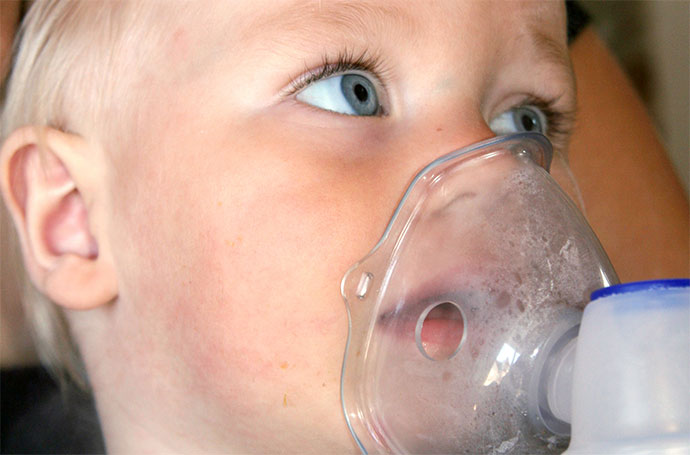People prone to hay-fever and respiratory conditions like asthma are being urged to prepare for the bushfire and thunderstorm asthma season.
Professor Matthew Peters, Respiratory Physician and Head of Respiratory Medicine at Concord Hospital, said with high levels of pollen in the air in spring and the ongoing risk of bushfire smoke, now is the time for people with asthma to update their Asthma Action Plans.
“Anyone with diagnosed asthma should have access to their asthma medication at all times during this high-risk period, avoid exposure to triggers where possible and proactively manage their asthma by regularly taking their inhaler treatments and monitoring symptoms,” Peters said.
“Even if you don’t have asthma, pollen is at its highest throughout spring and may spark problems in people with allergies like hay fever and sinus problems.”
Thunderstorm asthma events are not common, but when high pollen counts, thunderstorms and strong winds occur together they can affect many people including those with pollen allergies and people with current or previously diagnosed asthma. These very severe asthma attacks can develop extremely quickly.
The highest risk period for thunderstorm asthma events in NSW runs from October to December each year. Thunderstorm asthma events have occurred most commonly in the Riverina and other regional and rural areas but can occur anywhere when the conditions combine.
There are some simple steps people can take now to prepare. These include:
- if you have ever been diagnosed with asthma or have hay fever, ensuring you have an up-to-date action plan in place, including how you should manage your symptoms if you experience a flare-up due to bushfire smoke or pollen
- if your child has asthma, providing any updated asthma action plans to your child’s preschool, childcare centre or school
- checking that your and/or your child’s asthma reliever medication and spacer is up-to-date and stored in an easy spot for you or a responsible adult to get quickly
- if you have hay fever or asthma, knowing the warning signs of asthma like wheezing, breathlessness, feeling tight in the chest or persistent cough and when to seek advice from your doctor or urgent emergency care
- during times of high pollen, bushfire smoke or thunderstorms, where possible remaining inside and keeping windows and doors closed.

Weekender Newsroom
This post has been published by the team in our newsroom.

